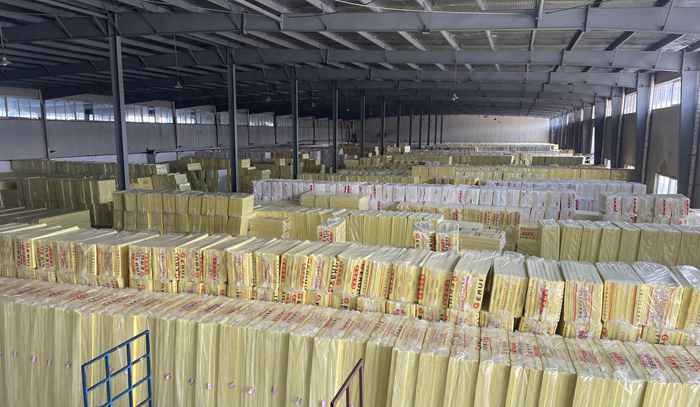Glass wool panel offers exceptional thermal insulation performance. It effectively reduces heat transfer by trapping air within its fibrous structure, creating a barrier that prevents the conduction of heat. This makes it an ideal choice for insulating walls, roofs, and floors in buildings, as well as industrial applications where temperature control is crucial.

Advantages of Glass Wool Panel:
Excellent Thermal Insulation: Glass wool board provides outstanding thermal insulation, effectively reducing heat transfer and improving energy efficiency in buildings and industrial applications.
Superior Acoustic Insulation: It offers excellent sound absorption properties, reducing noise transmission and improving acoustic comfort in spaces such as theaters, conference rooms, and recording studios.
Lightweight and Flexible: Glass wool board is lightweight and flexible, making it easy to handle, transport, and install. It can be easily cut and shaped to fit various applications and surfaces.
Fire Resistance: Glass wool board is non-combustible and has a high melting point, providing fire resistance and enhancing the overall safety of structures.
Moisture and Mold Resistance: It is resistant to moisture and does not support the growth of mold or fungi, making it suitable for use in humid environments.
Sustainable and Eco-Friendly: Glass wool board is made from recycled glass and can be recycled at the end of its life cycle, contributing to sustainability and environmental protection.
Applications of Glass Wool Board:
Building Insulation: Glass wool board is widely used in residential, commercial, and industrial buildings for insulating walls, roofs, and floors. It helps to maintain stable indoor temperatures, reduce energy consumption, and enhance comfort.
HVAC Systems: Glass wool board is used in heating, ventilation, and air conditioning (HVAC) systems to insulate air ducts and pipes, preventing heat loss or gain and improving energy efficiency.
Acoustic Treatment: It is applied in theaters, recording studios, music rooms, and other spaces that require soundproofing to minimize noise transmission and enhance acoustic performance.
Industrial Applications: Glass wool board is used in industrial settings for thermal insulation of equipment, tanks, and pipes, helping to maintain process temperatures, improve efficiency, and protect against heat loss or gain.
Cold Storage and Refrigeration: It is used in cold storage facilities, refrigeration units, and freezer rooms to provide thermal insulation and prevent condensation, ensuring optimal temperature control and energy efficiency.
Prefabricated Structures: Glass wool board is commonly used in the construction of prefabricated buildings and panels, providing insulation and enhancing the overall energy efficiency of the structures.
In summary, glass wool board offers excellent thermal and acoustic insulation properties, along with other advantages such as lightweight, flexibility, fire resistance, and sustainability. Its wide range of applications makes it a popular choice in the construction, industrial, and HVAC sectors, contributing to energy efficiency, comfort, and environmental sustainability.